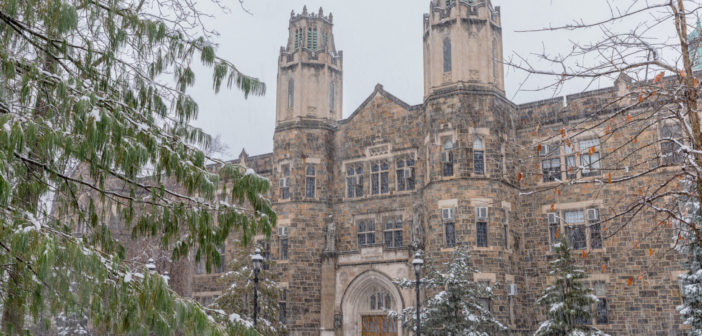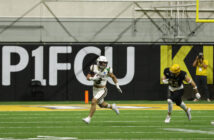Inclement weather responses and policies for the nearing winter season change as Lehigh sees new construction, restrictions in parking and more classes on Mountaintop Campus.
Lehigh transportation services supplements the university and collaboratively decides when to stop running transportation and how to continue to implement safe procedures with facility services, dining services, the Dean of Students office and LUPD.
Bob Bruneio, the manager of transportation services, has worked to assess last year’s transportation shortcomings in preparation for this winter.
Bruneio said transportation services starts planning early. Every year after the snow season, it has an after action-plan meeting and discusses what worked and what fell short of expectations. Additionally, the facility team meets early in the fall to start preparation for the upcoming season.
“Safety is paramount — many university resources work together to ensure that all factors are considered,” Bruneio said. “It’s not just roadways. It’s sidewalks, classes, dining services, residential housing, power, security, parking and transportation.”
Provost Pat Farrell said transportation services has better expertise about when buses will drive safely. As such, the university’s administration relies on the transportation and facilities’ assessment of the weather when making decisions about delayed openings, early dismissals and closing.
However, Farrell said classes can still be held if transportation has stopped running.
“It’s certainly a concern, especially with more classes on Mountaintop,” Farrell said. “If students cannot safely get there, it is a big issue, but it does not absolutely mean that classes are going to be cancelled.”
Elijah Jones, ‘22, who lives in Sayre Park, is concerned about attending classes in snowy weather.
Jones said based off of experiences last year, he does not understand how there could be class if buses are not running.
“Especially now that I am living in Sayre, how am I supposed to walk to class if it is unsafe for buses and cars to travel on the roads?” Jones said.
Jones said students are less inclined to attend classes on days with wintery weather conditions. He said the university did a good job clearing snow last semester, but fell short on cancelling classes when needed.
Farrell said faculty transportation and commute issues are not taken into consideration.
“I don’t know where faculty live,” Farrell said. “So in most respects, we do not really take that into great consideration. If it is not safe to travel, then they should make an alternative arrangement with class — we don’t want to force them to drive when it’s unsafe.”
Bruneio said the additional campus construction should not be a concern for students.
“In general, students will not need to do anything different than they do in good weather,” Bruneio said. “Their ability to walk to and from their classes will be based on the conditions of the walkways, and the bus service will continue to operate provided the roadways are safe for travel.”
Bruneio stressed the importance of having a plan for inclement weather. He suggests students prepare for snow events in advance.
If classes are in session, Bruneio said to make sure to leave a little earlier and wear proper clothing and sensible shoes or boots. Students should look toward resources like HawkWatch and emails to be notified of delays and cancellations, he said.
“Nothing is ever perfect,” Bruneio said. “We’re always going to be criticized for what we do or don’t do, but at the end of the day, (it’s) all about safety.”






Comment policy
Comments posted to The Brown and White website are reviewed by a moderator before being approved. Incendiary speech or harassing language, including comments targeted at individuals, may be deemed unacceptable and not published. Spam and other soliciting will also be declined.
The Brown and White also reserves the right to not publish entirely anonymous comments.
1 Comment
Why should we be worrying about a cold winter? I thought the problem was global warming!